Bleak future for Jakarta cyclists as cars dominate the city's roads
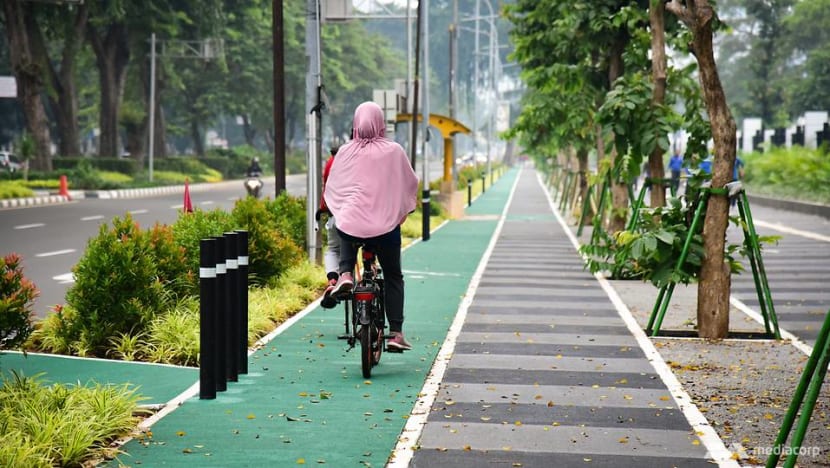
Cyclists ride a bicycle along the bike lane in Jakarta on Car Free Day. (Photo: Pichayada Promchertchoo)
JAKARTA: Indonesia's capital city is counting down to a transportation revolution next month, when it will have its own Mass Rapid Transit system (MRT). But as Jakarta looks towards some relief from its horrendous traffic problem, there are still residents who see other options as offering the potential to get the city moving.
Cycling is one of them. While most commuters in the city rely on motorised vehicles, some want to use bikes to avoid causing pollution and worsening the already slow-moving traffic.
Okka Wiranata used to be one of these cyclists. He had a big dream of making Jakarta friendlier to cycling and, in the process, less congested. So when he heard of the Jakarta Urban Challenge in 2015, he teamed up with two of his friends to try to save the city from its notorious traffic woes.
READ: Jakarta takes first step on journey to end traffic nightmare with new MRT
The trio won the third prize in the contest seeking the most effective solutions to the city’s jams with a concept called Cyclist Urban System, or CUS. The idea was to create cyclist hubs across the city – one-stop facilities where cyclists can park, repair or rent bicycles, have a shower, seek first aid assistance and find route information.
These hubs, they thought, would encourage more people to leave cars for bicycles and consequently reduce Jakarta’s traffic and pollution.
“But it wasn’t easy to get support from the government,” the 33-year-old architect said.
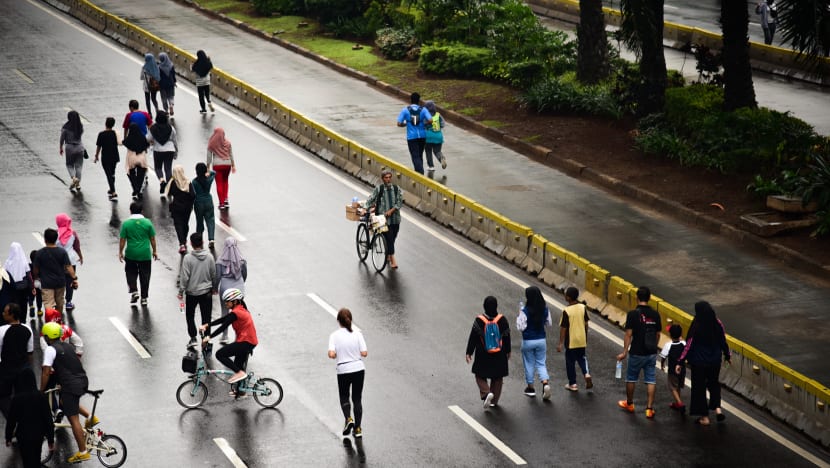
It has been nearly four years since the trio’s initiative was formulated. Still, Okka has no idea if he will ever get to see any cyclist hub. The design has been submitted to the Jakarta provincial government, he said, but there has been no implementation due to limited funding and a lack of clear directive.
There are different departments and they didn’t collaborate. After meeting with one department, they’d say ‘You have to go to another one because this is not my duty’.
Over the past few years, traffic flow in the capital has barely improved. More roads have been built for more cars but to limited effect and Okka no longer dreams of a bicycle-friendly Jakarta. Unlike before, the idea seems impossible to him now.
“More roads mean more cars,” he said. "If you want to reduce the number of cars, you reduce the roads.”
Solving Jakarta’s notorious traffic is not that easy, however. The Indonesian capital is brimming with 12 million people during the day and 10 million at night. On any given day, more than 2 million people commute around the city and, according to data from Jakarta Transportation, most of them rely on private vehicles due to poor-quality and insufficient public transport.
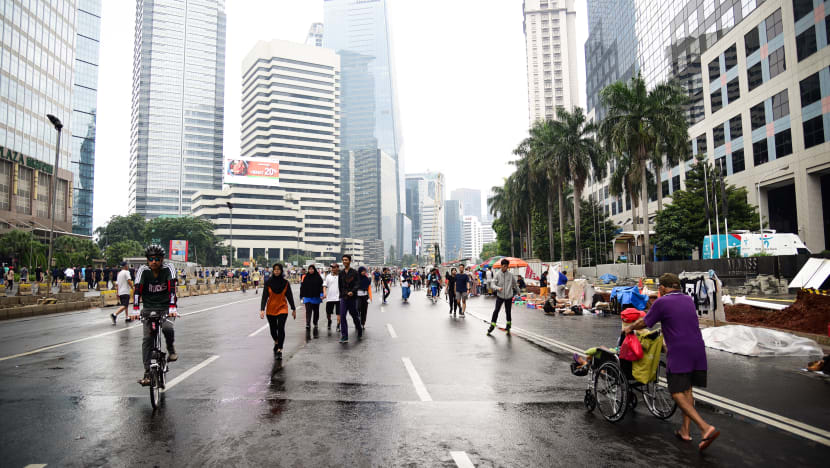
As a result, there are not so many travel options for commuters in Jakarta, particularly for those who wish to reduce their carbon footprint. Pedestrians and cyclists often end up on broken pavements or scattered bike lanes. These paths are also frequently blocked by cars and motorcycles, which explains why many pedestrians and cyclists choose to travel on the main road instead.
“Cycling on weekdays is very challenging because there are many vehicles and limited facilities for us,” Julius from Jakarta’s Bike to Work initiative told Channel NewsAsia, citing a number of accidents involving cyclists in the capital.
In January, a 79-year-old cyclist was killed by a truck in North Jakarta after it hit him from behind. In October last year, another cyclist lost his life when a public bus hit him in Central Jakarta. The man was reportedly riding in the bus lane when the crash occurred.
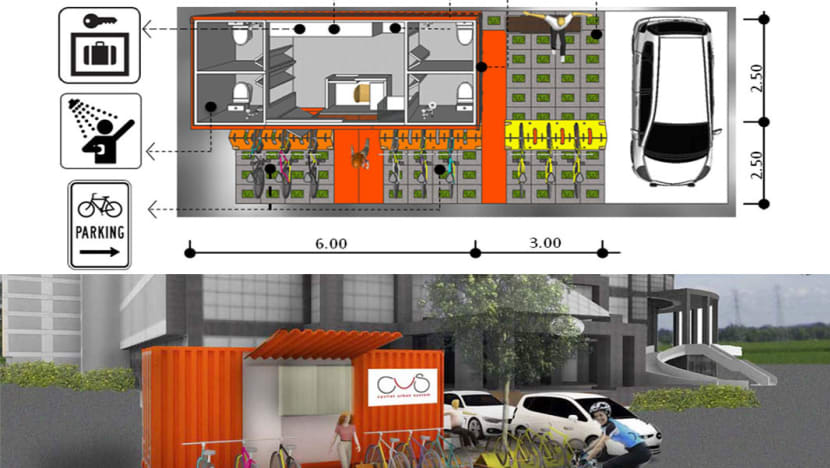
“The Jakarta provincial government has thought for a long time how we can accommodate non-motorised transportation and make cycling and walking more comfortable,” said Jakarta Deputy Governor Soetanto Soehodho, who is in charge of transportation.
“We’ve already prepared [the infrastructure] but it’s not just about building it. The question is how we can maintain it for its function. Keeping it free for pedestrians and cyclists is difficult," he added.
According to Transport Minister Budi Karya Sumadi, the government is trying to improve the quality of non-motorised transportation in Jakarta.
“We have also coordinated with the police to punish motorcycle riders who pass (use) the sidewalks. In the future, the government will continue to improve pedestrian facilities so that people can use them in comfort. This also applies to bicycle lanes,” he told Channel NewsAsia.
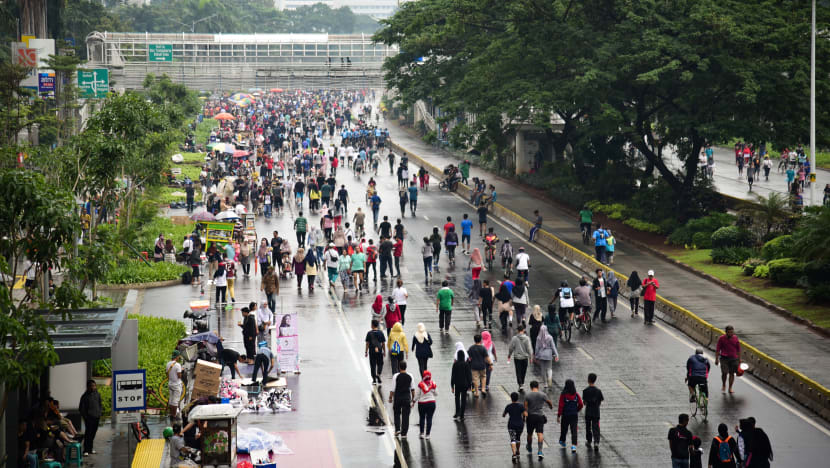
For the likes of Okka, however, non-motorised transportation clearly takes a back seat in Jakarta’s transport policy. His teammate and wife Ria Pratama said CUS is a feasible concept but it will need all stakeholders to get behind it to turn it into reality.
“We can’t do it alone. The problem isn’t too difficult. It’s like providing parking spaces for cars and motorcycles, praying rooms, and areas for nursing mothers,” she said. “The question is whether you want to solve it or not.”
But Jakarta may not be an ideal city for cycling, after all. Transportation analyst Dr Yayat Supriatna told Channel NewsAsia that pollution in the capital, hot climate and a lack of facilities for cyclists make the city unsuitable for this mode of transportation.
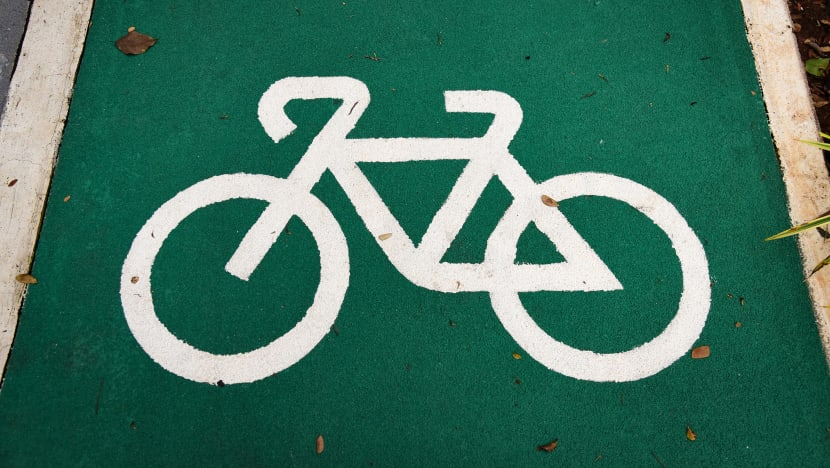
For five hours a week, cycling in Jakarta becomes safer and more convenient on Car Free Day. Every Sunday, pedestrians and cyclists take over the city's main roads Sudirman and Thamrin, which are closed to private cars between 6 am and 11 am.
Beyond these hours though, the activity can be challenging with millions of cars on the roads, filling the air with toxic fumes.
“That’s why we moved to Bali,” Okka said.
“We have a daughter and we thought she deserves a better city. I don’t think Jakarta is conducive to cycle anymore, given the construction, dust and cars. It’s a pity for cyclists,” Ria added.














